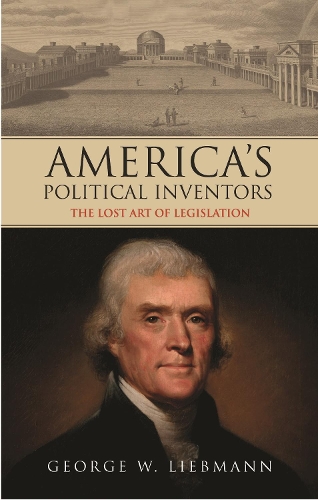
America's Political Inventors: The Lost Art of Legislation
(Hardback)
Publishing Details
America's Political Inventors: The Lost Art of Legislation
By (Author) George W. Liebmann
Bloomsbury Publishing PLC
I.B. Tauris
11th December 2017
United Kingdom
Classifications
Tertiary Education
Non Fiction
Political leaders and leadership
History of ideas
Constitution: government and the state
973
Physical Properties
Hardback
208
Width 138mm, Height 216mm
390g
Description
Recent American political developments, including the election of Donald Trump, reveal profound disquiet with the highly centralized political regime based on discretionary allocation of funds and powers to interest groups that has developed since the creation of emergency institutions after America's entry into World War I. This book demonstrates the effectiveness in American history of measures conceived in a different spirit, addressing the population at large, rather than particular interest groups, relying on citizen and local initiative, and founded not on the distribution of frequently unearned benefits and powers but on reciprocal contributions and obligations. George W. Liebmann discusses John Winthrop and his foundation of New England towns; John Locke and the creation of Southern plantations; Thomas Jefferson and his scheme for the organization of Northwestern townships and American territories and states; Joseph Pulitzer and the origins of municipal home rule; John Wesley Powell and the creation of reclamation districts; Hugh Hammond Bennett and the fostering of soil conservation districts; and Byron Hanke and the development of residential community associations. The book concludes with a number of public policy proposals relating to housing, urban renewal, care of the elderly, immigration and youth unemployment conceived in the same spirit. Liebmann brings to light little-known facts concerning the growth of practices and institutions that Americans take for granted. His book will be of interest to students of biography, history and government.
Reviews
Liebmanns expertise in American government and its history is evident throughout. He makes the historical development of institutions come alive by putting faces and personalities on those who promoted them. * William A. Fischel, Professor of Economics and Hardy Professor of Legal Studies, Dartmouth College *
Citing historical and contemporary critics, including Tocqueville, Theodore Lowi and Robert Wiebe, Liebman condems pluralistic government by interest groups in which 9in Lowis words there is no formal specification of ends and means. . . and therefore, no substance. . . only process. In place of this, Liebmann urges devolution,reciprocity of obligations, institution-building and predictability. * Chilton Williamson, author of After Tocqueville in Chronicles *
This book consists mostly of engaging vignettes of individuals who pioneered the development of largely successful schemes for the improvement of American life at the state and local levels. . . This is an original, well-written, rewarding book meriting a wide readership. * David Schaefer, Professor of Political Science, College of the Holy Cross, in Choice *
Author Bio
George W. Liebmann is an historian and lawyer specialising in American and international history. His publications include Diplomacy Between the Wars: Five Diplomats and the Shaping of the Modern World; The Last American Diplomat: John D Negroponte and the Changing Face of US Diplomacy and The Fall of the House of Speyer: The Story of a Banking Dynasty (all published by I.B.Tauris).
